How to Safely Store Vegetables to Keep Them Fresh and Tasty

Your mom was right: You should really eat your vegetables. According to the American Heart Association (AHA), consuming four and a half cups of veggies per day can help you stave off a range of chronic illnesses, including heart disease, stroke, hypertension, diabetes, cancer, and more. Packed with vitamins and minerals, they can also help you get all the nutrients you need while maintaining a healthy weight.
Of course, none of this can happen if your vegetables spoil before you get the chance to eat them. All too often, after spending a fortune at the grocery store, we return to our refrigerators to find poorly stored produce that’s gone moldy, limp, or otherwise inedible.
The good news? Experts say there are a few simple tips for keeping your veggies fresher for longer. Read on for their top 10 suggestions.
RELATED: How to Safely Store Fruit to Keep It Fresh and Tasty.
1
Don’t leave them on the counter.

According to the US Department of Agriculture (USDA), “very few [vegetables] can be safely stored at room temperature for long, and most must be kept in the refrigerator.”
They note that produce varies widely in storage times “from a few days to several weeks,” and you should always check for signs of spoilage, including bruises and mold.
Once you’ve cut or cooked your veggies, it’s even more important that you refrigerate them in covered containers or plastic freezer containers.
The USDA recommends washing all produce under cold running water before preparing them to cook or serve. “Avoid leaving cut, peeled and cooked fruit and vegetables at room temperature for more than two hours,” they advise.
2
Control air, moisture, and light.
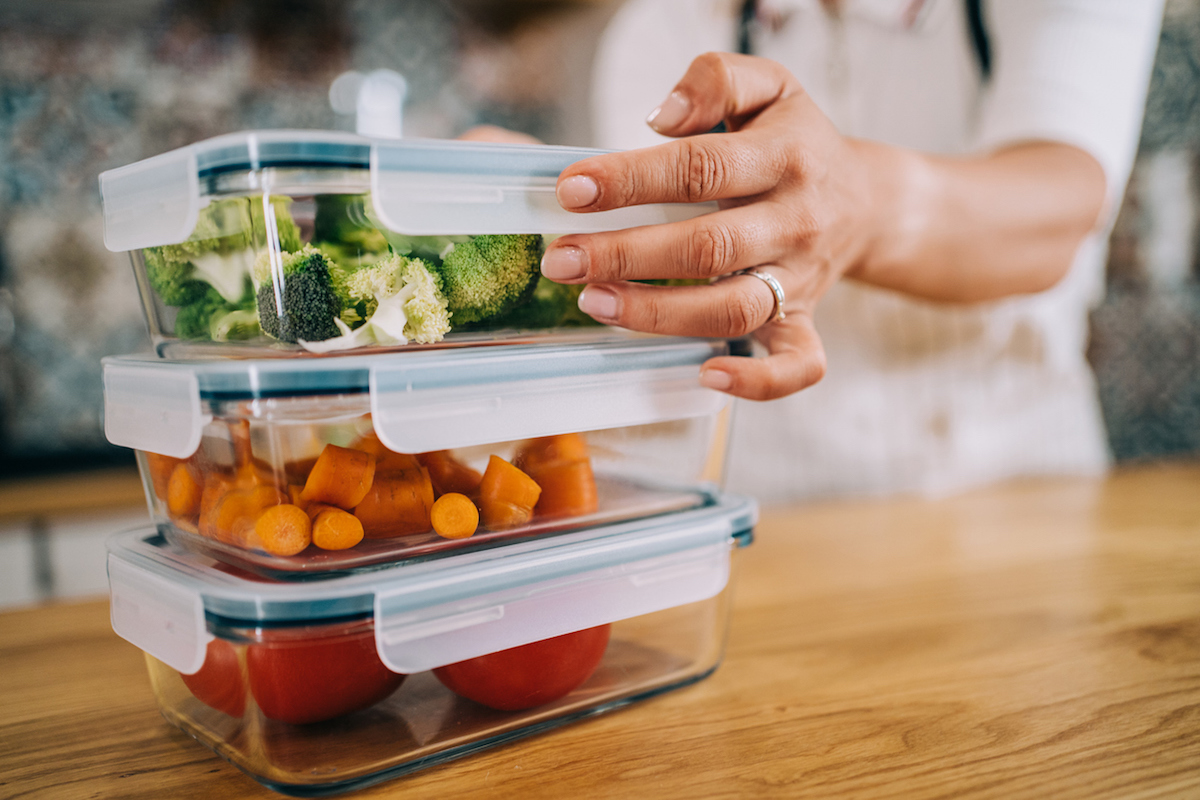
Choosing the right containers can also help prevent your vegetables from spoiling, says Lindsay Malone, RD, a registered dietitian and adjunct professor of nutrition for the School of Medicine at Case Western Reserve University.
She recommends using containers specifically made for produce with different settings on the lid to keep air, moisture, and light out or in.
RELATED: 13 Worst Items to Store in Your Pantry.
3
Separate your veggies from ethylene-releasing fruits.
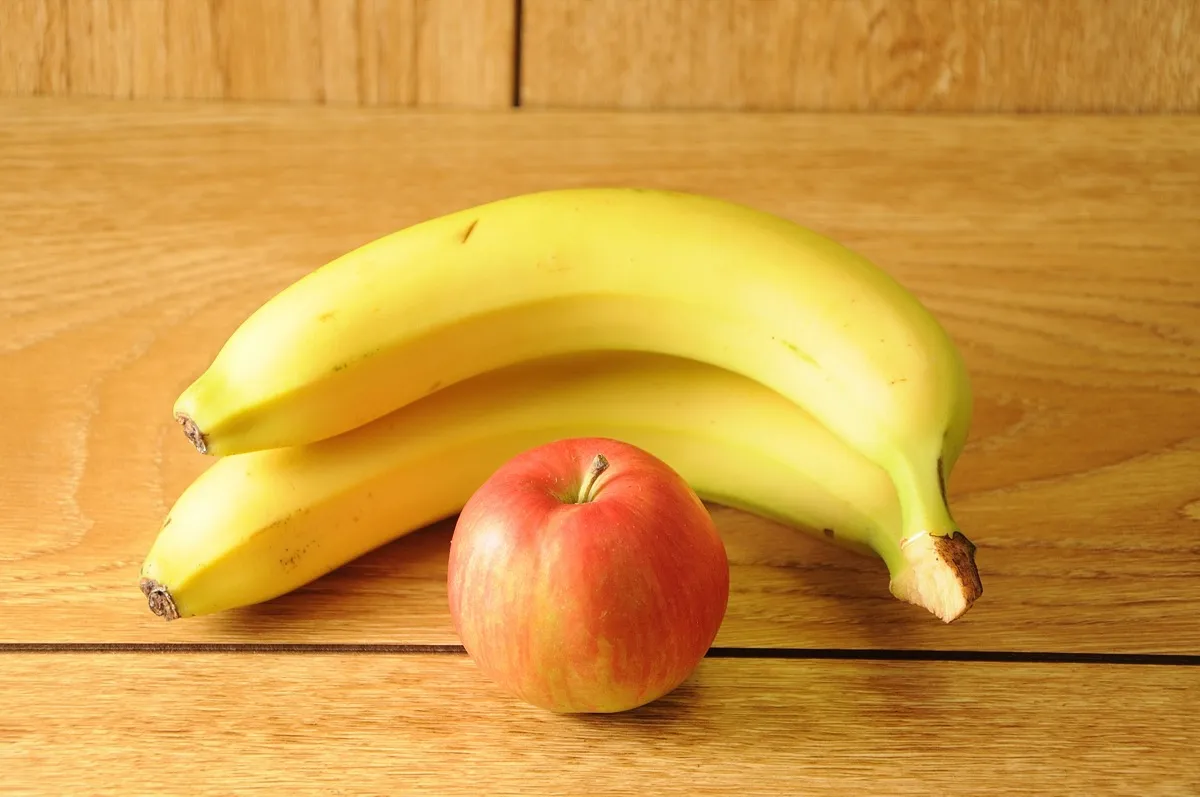
If you can’t figure out why your veggies always spoil prematurely, there’s a good chance you’re storing them too close to certain other produce that emits an invisible, odorless gas called ethylene. Bananas, apples, pears, melons, avocados, and tomatoes are all examples of fruits that give off the ripening agent.
Some vegetables are especially sensitive to ethylene and should be kept at a distance. For instance, broccoli, collard greens, cucumbers, eggplant, onions, lettuce, and peppers are all likely to spoil if kept in close quarters with ethylene-emitting fruits.
4
Use your produce drawers.
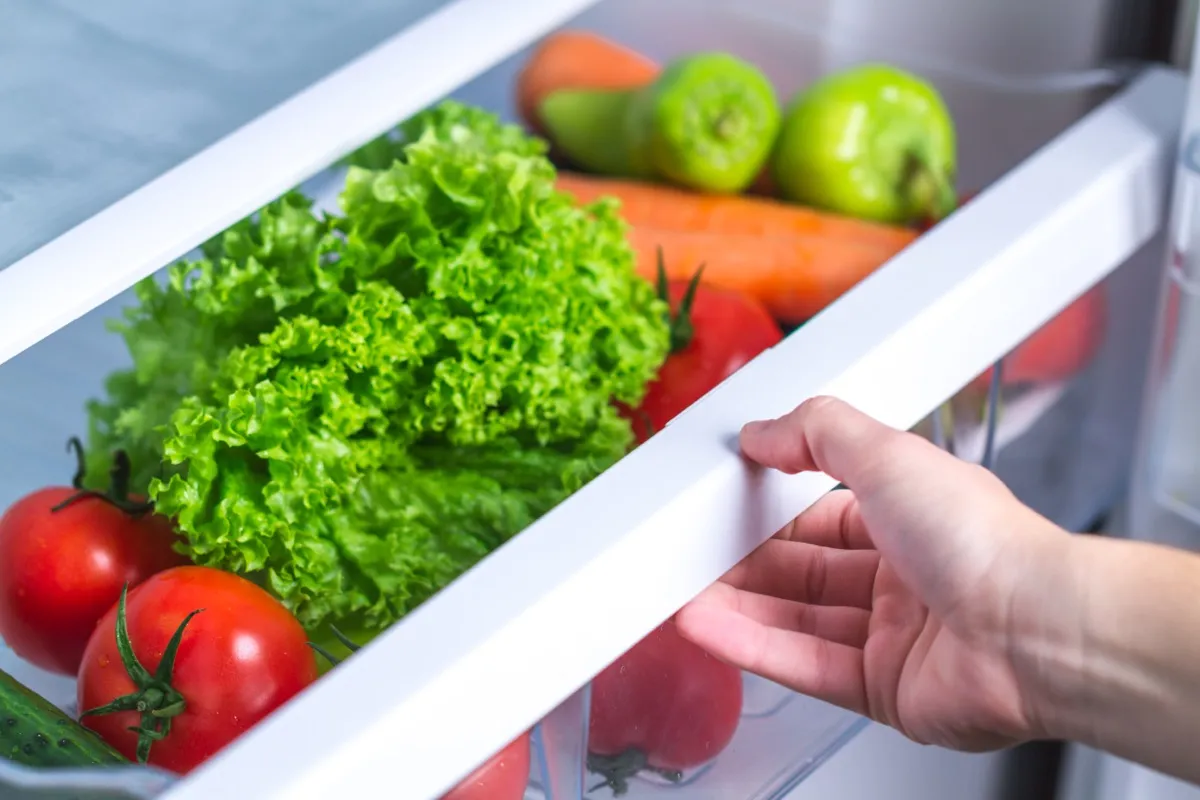
The crisper drawers in your refrigerator allow you to regulate humidity and airflow around your produce with the turn of a dial. High-humidity drawers are best for vegetables, including leafy greens, herbs, broccoli, asparagus, and anything else prone to wilting, while high-ethylene fruits belong in low-humidity drawers.
RELATED: 7 Things You Should Never Keep in Your Fridge, According to Experts.
5
Store produce toward the front of the fridge.
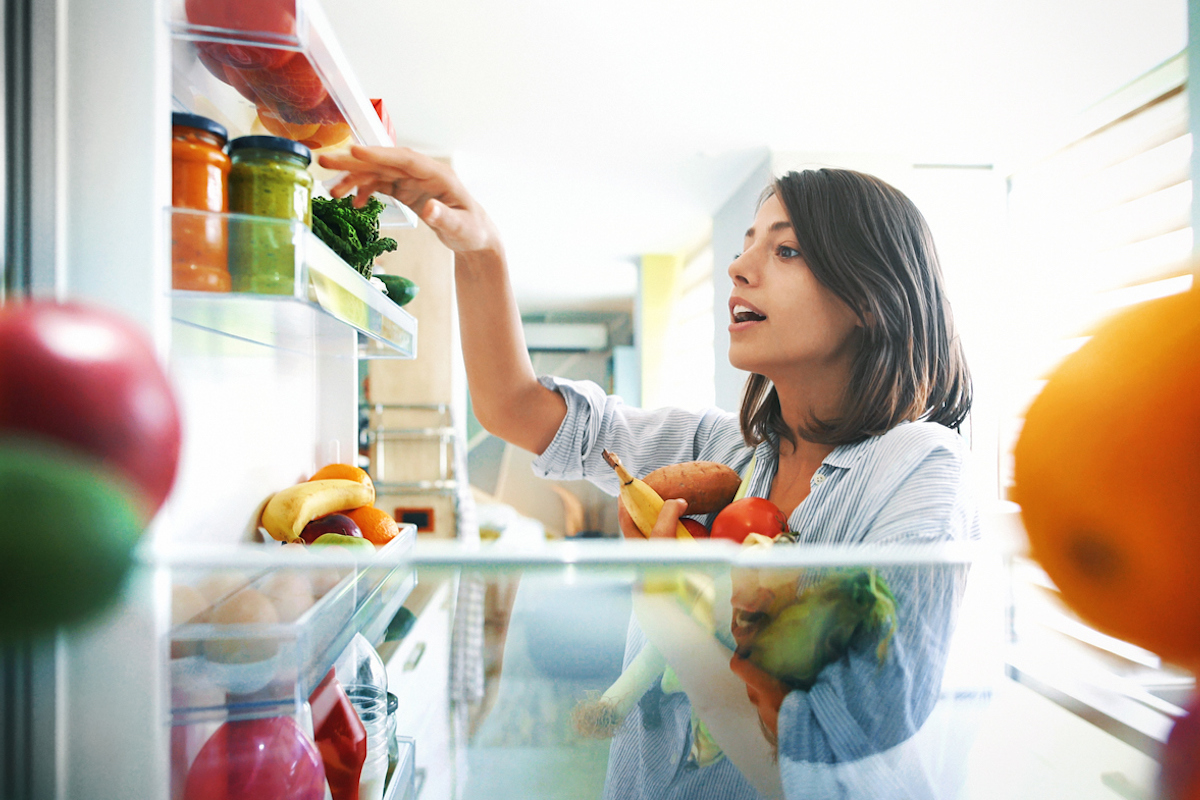
Shelley Balls, MDA, RDN, LDN, a registered dietitian and nutritionist for Consumer Health Digest, says it’s also a good idea to store your produce toward the front of your refrigerator because when it’s in a highly visible location, you’ll be more likely to use it in a timely fashion.
6
Sort through bagged salads.
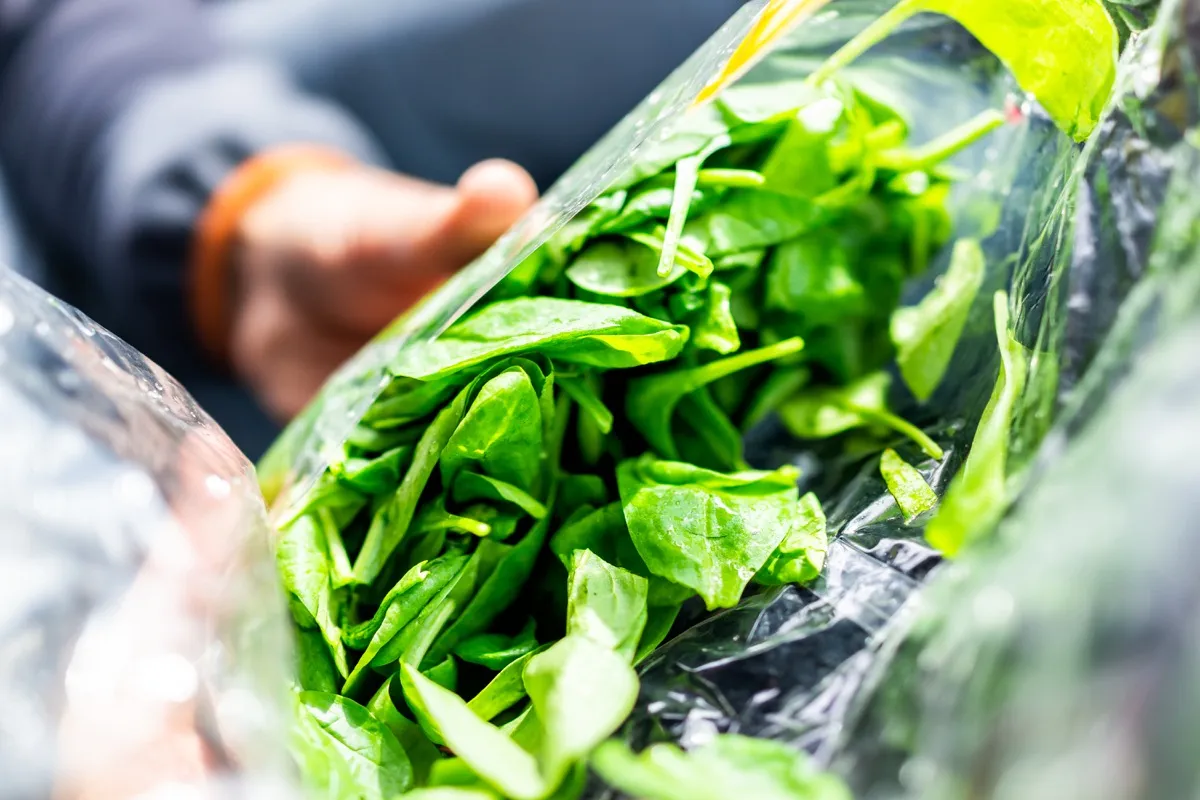
Kimberley Wiemann, MS, RDN, a registered dietitian and owner of Kimberley Wiemann Nutrition, says there’s a simple trick to keeping your bagged salads fresher for longer.
“First, before you put the salad in the fridge, open the bag or container and look through to see if there are already any rotten pieces of lettuce (or spinach or kale, etc.). Once there is one bad piece, it will more quickly spread to the rest,” she tells Best Life.
“Also, place a dry paper towel in the bag or the bottom of the container to help absorb any excess moisture. The extra moisture is what will cause the lettuce to become spoiled more quickly,” she notes.
RELATED: 5 Things in Your Pantry You Need to Throw Out.
7
Wash and cut your produce just before eating it.
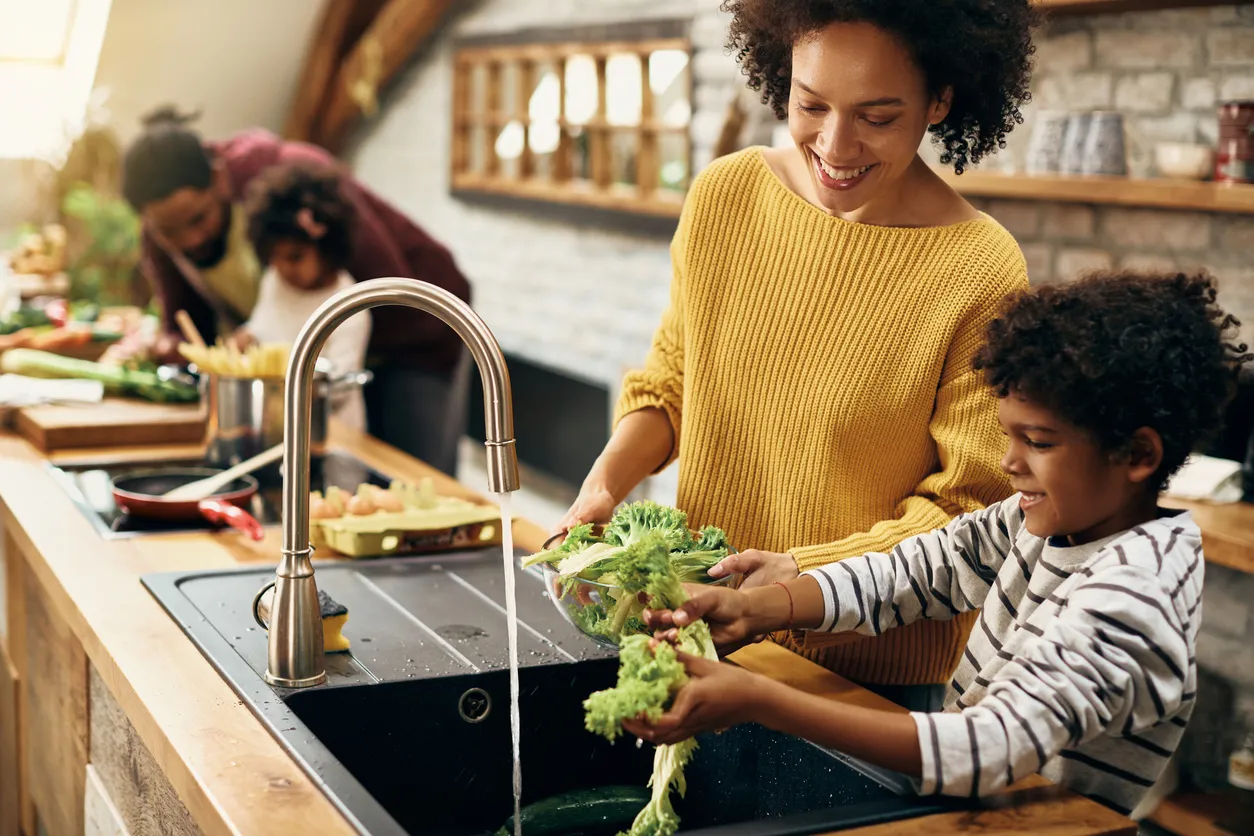
Whenever possible, you should plan to wash and cut your vegetables just before eating them rather than preparing them far in advance. This is especially true for high-moisture vegetables, which can quickly grow bacteria.
“Once vegetables are cut up, they are more likely to become rotten faster. If you like to meal prep and have fresh veggies cut up and ready to go, try not to do it more than 2-3 days prior to consuming them,” says Wiemann.
8
Bring your own grocery bags.
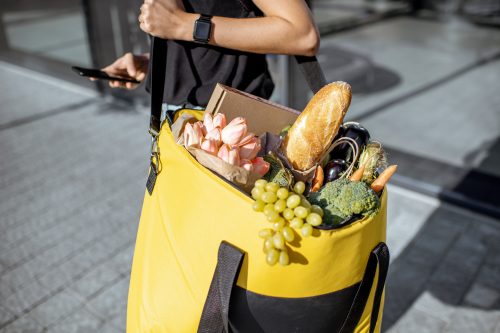
Bringing your own bags to the grocery store can also help you regulate your food’s temperature on a potentially long trip home.
Malone says it’s important to choose insulated bags for hot days and not waste time getting home: “The longer the produce sits in higher temperatures, the faster it will ripen.”
RELATED: 7 Foods You Should Never Freeze, According to Experts.
9
Keep your potatoes in a cool, dark place.
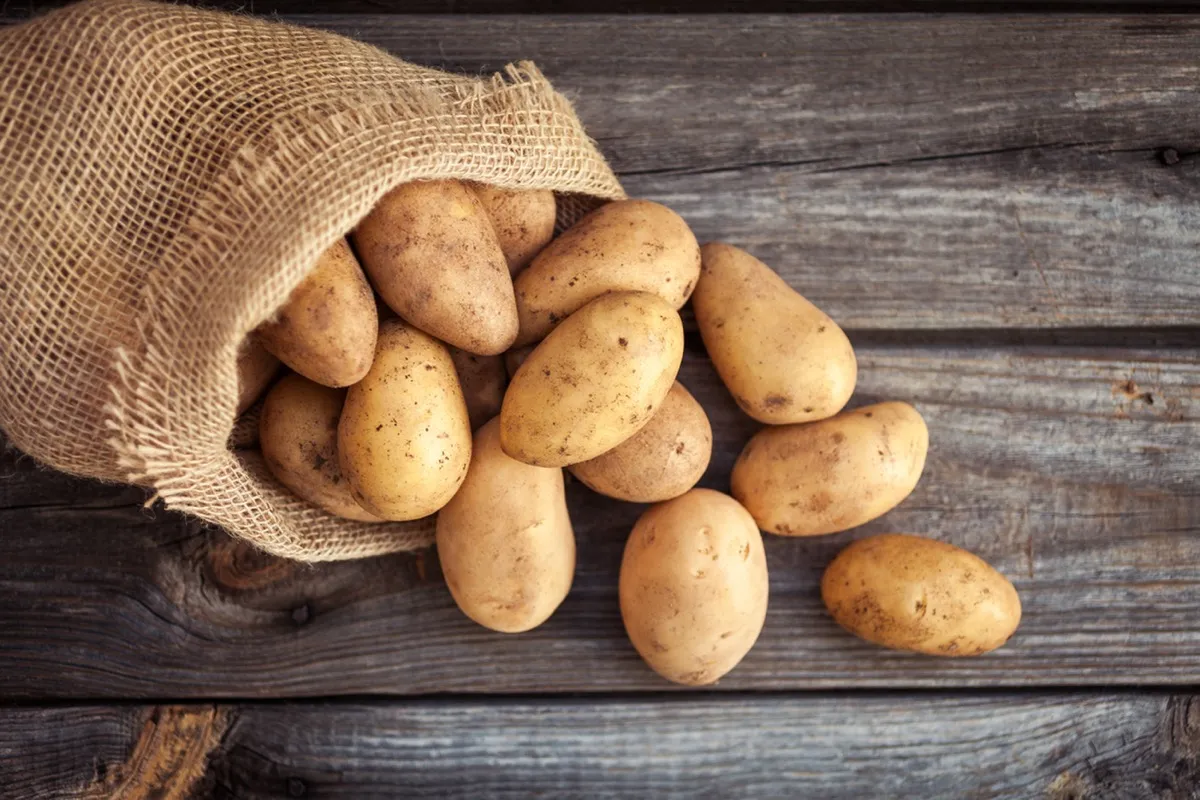
To preserve certain root vegetables, such as potatoes and sweet potatoes, for as long as three months, you should plan to skip the fridge. Instead, put them in a paper bag and store them in a cool, dry, dark place such as a pantry, garage, or cellar.
Other root vegetables, such as carrots, turnips, beets, and radishes, can still be kept in your high-humidity crisper drawer.
10
Give your wilting veggies an ice bath.
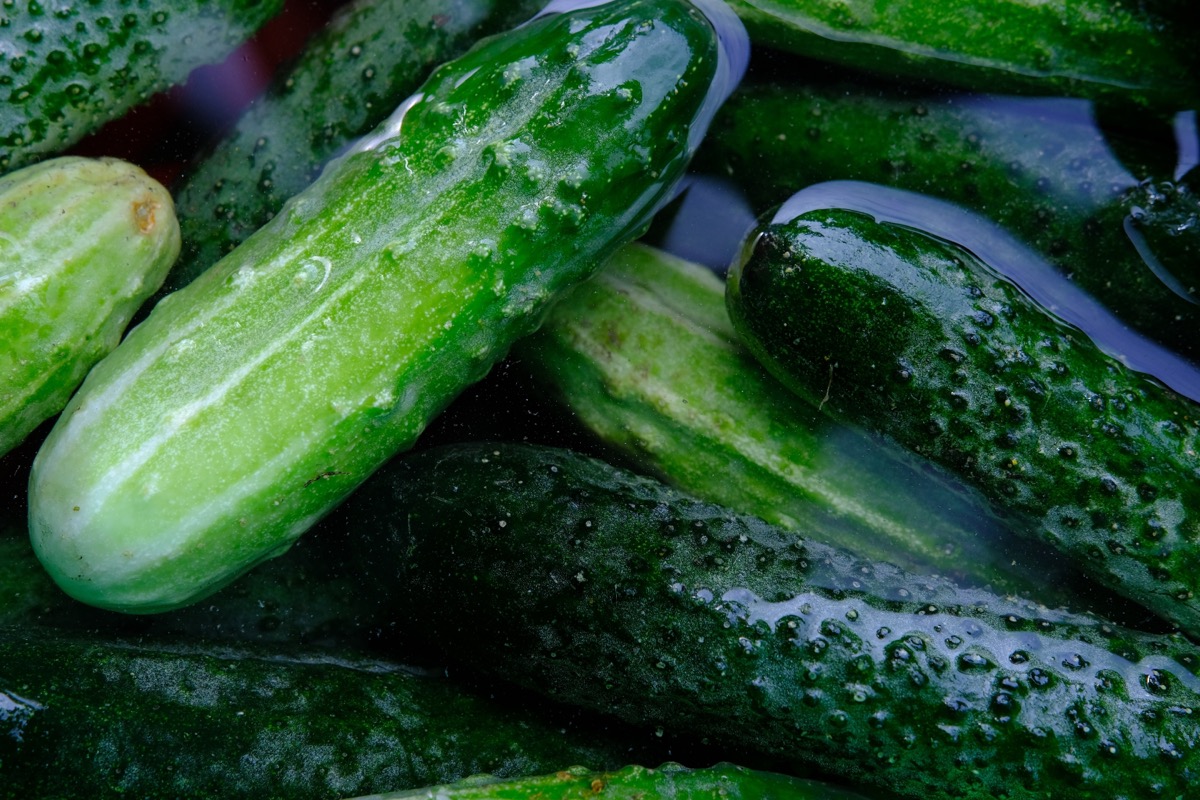
If your vegetables are looking like they’re already past their prime, Malone says you may be able to bring them back to life using an ice bath. This won’t help with bruising or mold, but if, for example, you’ve got limp celery or cucumbers in your fridge, she suggests giving them a quick plunge in cold water.